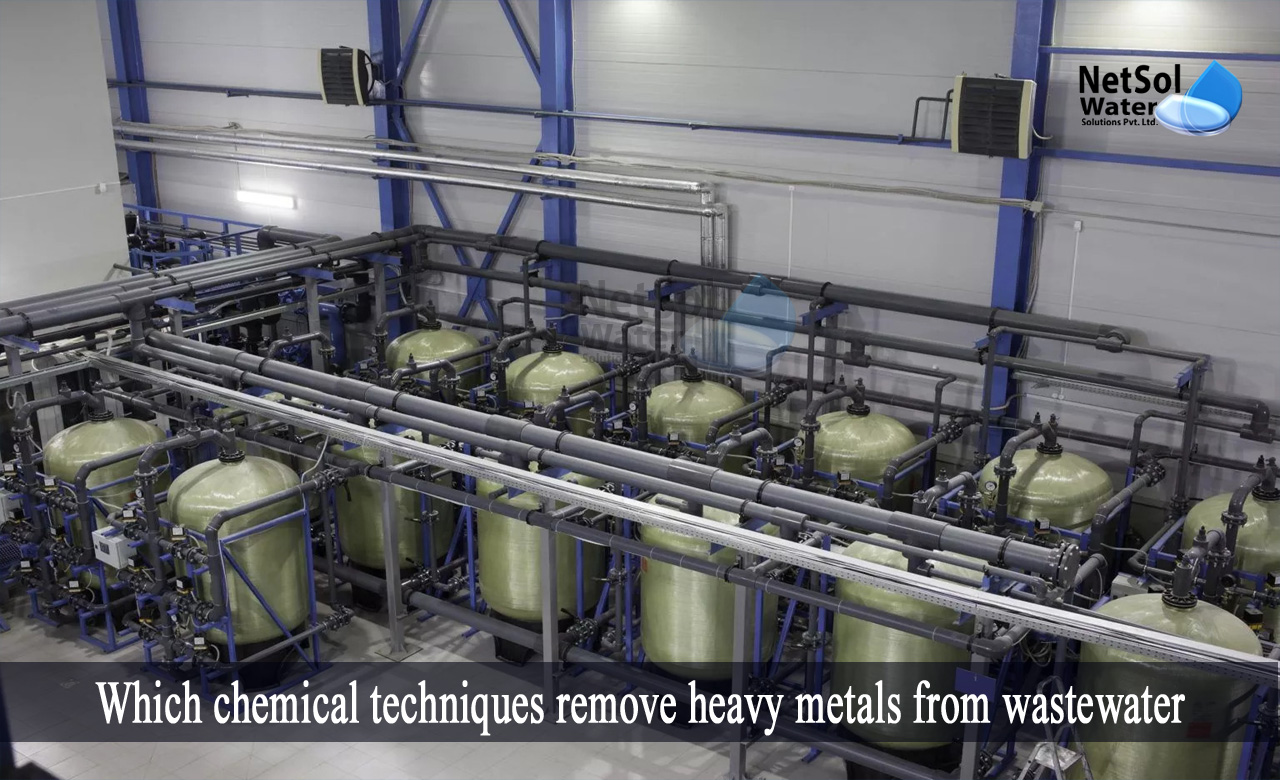To achieve technology-based treatment standards, cutting-edge procedures for handling industrial wastewater containing heavy metals, frequently incorporate toxicity reduction technologies.
Sectors containing heavy metals, such as Cd, Cr, Cu, Ni, As, Pb, and Zn, are the most dangerous among chemical-intensive industries, because they discharge significant amounts of wastewater contaminated with metals.
Why is it important to treat wastewater containing heavy metals?
Heavy metals are highly soluble in aquatic conditions which make them absorbable by living things. Large amounts of heavy metals may build up in the human body when they enter the food chain. The metals can result in major health issues if consumed more than the authorized concentration.
Therefore, before being released into the environment, metal-contaminated wastewater must be treated. Conventional treatment methods include chemical precipitation, ion exchange, and electrochemical removal, which can remove heavy metals from inorganic effluent.
Which chemical techniques to remove heavy metals from wastewater?
1) The most popular method for removing heavy metals from inorganic wastewater is chemical precipitation. The following is the theoretical mechanism of chemical precipitation's removal of heavy metals:
![]()
![]() M2+ + 2(OH− )M(OH)2
M2+ + 2(OH− )M(OH)2
Where,M(OH)2 is the insoluble metal hydroxide and M2+ and OH are the dissolved metal ions and precipitant, respectively. The key factor that considerably increases heavy metal removal by chemical precipitation is pH adjustment to the basic range (pH 9–11).
(2) Ion exchange is another technique for removing heavy metals from wastewater that is successfully employed in the industry. A solid that can exchange cations or anions from the materials around it, is an ion exchanger. Synthetic organic ion exchange resins are frequently utilized as ion exchange matrices.
(3) Adsorption on fresh adsorbents: Adsorption is becoming a popular alternative treatment method, for heavy metal-contaminated wastewater. Adsorption is essentially a mass transfer process in which a substance is moved from the liquid phase, to the surface of a solid and is then chemically or physically bonded.
· Adsorption on modified natural materials
Natural zeolites have drawn a lot of attention, largely because of their advantageous qualities as ion exchange materials. Clinoptilolite, one of the most studied natural zeolites, has demonstrated excellent selectivity for specific heavy metal ions, including Pb(II), Cd(II), Zn(II), and Cu (II).
· Adsorption on industrial by-products
Chemical modifications can be made to industrial by-products such as fly ash, waste iron, iron slags, and hydrous titanium oxide, to improve their ability to remove metal from wastewater.
· Adsorption on agricultural and biological wastes
Bio-sorption is the process of using agricultural byproducts in the bioremediation of heavy metal ions.
· Adsorption on modified biopolymers and hydrogels
Because, they are readily available, ecologically safe, and capable of reducing transition metal ion concentrations, to sub-part per billion levels, biopolymers are appealing to industry.
Another appealing quality of biopolymers is their diversity of functional groups, including hydroxyls and amines, which improve the efficiency of metal ion uptake, and the potential for maximal chemical loading.
4) Membrane filtration
Since, it can remove both suspended solids and organic components as well as inorganic pollutants, like heavy metals, membrane filtration has drawn a lot of attention for the treatment of inorganic effluent.
Different forms of membrane filtration, including ultrafiltration, nanofiltration, and reverse osmosis, can be used to eliminate heavy metals from wastewater depending on the size of the particle that can be retained.
Conclusion
The innovative physico-chemical removal processes, such as adsorption on new adsorbents, membrane filtration, electrodialysis, and photocatalysis, are a particular focus of recent developments and technical applicability of various treatments, for the removal of heavy metals from industrial wastewater.
How can we assist?
Heavy metals need additional treatment stages before filtering, since they are discharged with many different types of industrial effluent. To help the industrial sectors comply with heavy metal discharge regulations, Netsol Water offers affordable wastewater equipment and solutions.
Netsol Water is Greater Noida-based leading water & wastewater treatment plant manufacturer. We are industry's most demanding company based on client review and work quality. We are known as best commercial RO plant manufacturers, industrial RO plant manufacturer, sewage treatment plant manufacturer, Water Softener Plant Manufacturers and effluent treatment plant manufacturers. Apart from this 24x7 customer support is our USP. Call on +91-9650608473, or write us at enquiry@netsolwater.com for any support, inquiry or product-purchase related query.



